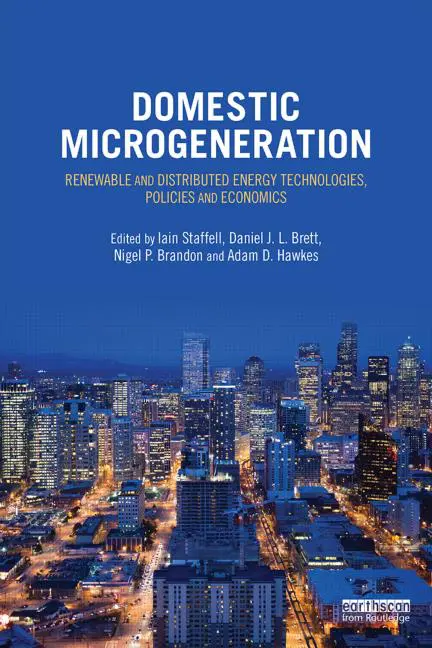Carbon Footprint, Energy, News
Circular Ecology contributes to new book on Microgeneration
Taylor & Francis is due to publish a new book on Domestic Microgeneration on 16 June 2015, containing a chapter co-authored by Dr Stephen Allen of Circular Ecology.
Microgeneration – producing energy for the home, in the home – can provide a substantial improvement over the current centralised and detached energy model employed the world over.
A key benefit of microgeneration is lower carbon dioxide emissions during operation, compared with conventional energy technologies. This benefit must however be weighed up against the environmental ‘costs’ of microgeneration technologies, including the ‘embodied’ carbon dioxide emissions associated with their manufacture.
The book is available for pre-order now from the Taylor & Francis website.
Book reviews
“Is the widespread belief that microgeneration is “a good thing” well founded, or is it wishful thinking? How well does each microgeneration technology perform in practice? How cost effective is each technology, taking into account its embodied materials? This book does a great job of assembling the evidence and sorting the wheat from the chaff.” – David J.C. MacKay FRS, Regius Professor of Engineering, University of Cambridge, Former Chief Scientific Adviser to the UK Department of Energy and Climate Change
“Microgeneration could play a significant role in the mosaic of solutions to the problem of low-carbon heat. Its role in empowering energy consumers can also be overlooked. This book separates fact from prejudice and provides an evidence base that policymakers and anyone with an interest in the area can rely on.” – Jim Skea CBE, RCUK Energy Strategy Fellow and Professor of Sustainable Energy, Imperial College London

